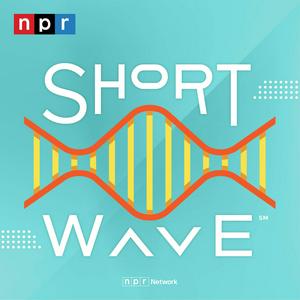The comet 3I/ATLAS is taking a long holiday journey this year. It’s visiting from another solar system altogether. Those interstellar origins have the Internet rumor mill questioning whether 3I/ATLAS came from aliens. Co-hosts Emily Kwong and Regina G. Barber dive into that, plus what it and other interstellar comets can tell us about planets beyond our solar system.Read more of NPR’s coverage of 3I/ATLAS. Also, if you liked this episode, check out our episodes on: - the physics in the film Interstellar- why Pluto is still helpful for learning how our solar system formedInterested in more space science? Email us your question at
[email protected] to every episode of Short Wave sponsor-free and support our work at NPR by signing up for Short Wave+ at plus.npr.org/shortwave.Learn more about sponsor message choices: podcastchoices.com/adchoicesNPR Privacy Policy


